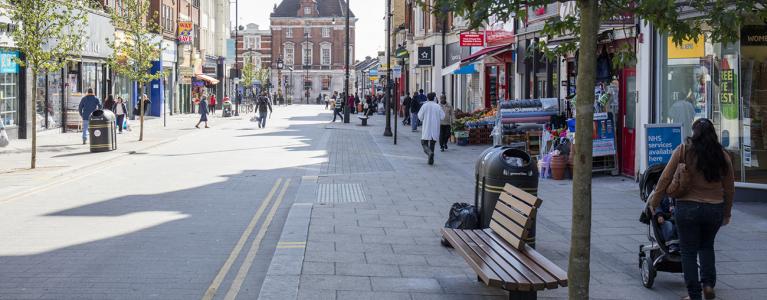
The Met must ensure training for Met officers attending collision scenes is strengthened to increase public trust in the way serious traffic collisions are investigated.
That is the view of the London Assembly Police and Crime Committee that has today published its report – ‘Police investigation of serious injury collisions in London’ – which highlights the importance of justice for victims, and informing future preventative interventions.
In 2022, 23,465 road collisions were reported to the police in London, compared to 25,637 in 2019.[1]
These collisions resulted in 102 people being killed, 3,859 people seriously injured and 23,246 people slightly injured.
The Mayor's Transport Strategy sets out his goal for Vison Zero for London. It states that the Mayor’s aim is for “all deaths and serious injuries from all road collisions to be eliminated from the streets by 2041”.[2] Vision Zero includes the following targets:
- By 2022 – reduce the number of people who are killed or seriously injured by 65 per cent against 2005-09 levels
- By 2030 – reduce the number of people who are killed or seriously injured by 70 per cent against 2010-14 levels
- By 2041 – eliminate all deaths and serious injuries from road collisions from London’s streets.[3]
RoadPeace, the national charity for road crash victims, has said that:
“A good investigation is essential to achieving justice and reducing road danger – without this, law breaking escapes detection, fair compensation is hampered, prevention programmes are limited, victims suffer secondary victimisation, and public lack confidence in police interest in protecting them, thus deterring many from walking and cycling. It is the cornerstone for justice on our roads”.[4]
The Committee’s report outlines 11 recommendations for the Met and the Mayor to improve the current investigative processes when responding to serious injury road collisions.
Recommendations include:
- By 31 December 2024, the Met should review its guidance and training offered to police officers attending the scene of a collision to ensure they understand what is required and that all necessary “basic checks” are being completed.
- The Met should develop an action plan for how it will ensure all officers who are involved in the investigation of serious injury collisions are equipped with the most up to date guidance and training, and provide an update to this Committee on planned extra training for collision investigators by 31 December 2024. The Met should also consider how it can involve organisations that support road traffic victims in the design and provision of this additional training.
- The Mayor should work with the Met to create information guides to distribute to victims and their families to ensure they know what service and minimum standards to expect from the Met during an investigation.
- The Met should ensure every road crash victim that has life-threatening or life changing injuries, and their family, has access to a dedicated family liaison officer (FLO).
Caroline Russell AM, Chair of the London Assembly Police and Crime Committee, said:
“Campaigning to reduce the danger on our roads is what brought me into politics. It’s an issue I care personally about, and I am so glad to have the Police and Crime Committee look at this in depth for the first time in the history of the Assembly.
“Every Londoner should be able to pick up their child from school or pop out to the shops for a pint of milk and get home safely. But unfortunately, that isn’t always the case.
“Serious injury collisions have a devastating impact on victims and their families. Ensuring they receive high standards of support throughout the investigation, and that the investigation is carried out thoroughly are both highlighted in our report as areas that need urgent improvement.
“We heard that while the hundred most serious collisions get a forensic investigation many serious collisions do not. This has shaped our recommendations calling for improved training for officers, better information sharing, and access to a dedicated family liaison officer for victims and their families.
“I urge the Met to take our recommendations forward. Improved collision investigation will help London achieve the Vision Zero target of no deaths or serious injuries on our roads by 2041.”
PCC Serious injury collisions report
Serious collisions - written evidence from organisations
Serious collisions - written evidence from individuals
Notes to editors
- TfL, Road safety dashboard
- Mayor of London, Mayor’s Transport Strategy, March 2018
- Ibid
- RoadPeace, APPG Cycling Justice for Cyclists inquiry: RoadPeace response, January 2017
- Read the report attached.
- Caroline Russell AM, Chair of the Police and Crime Committee, is available for interview.
- Find out more about the work of the Police and Crime Committee.
- As well as investigating issues that matter to Londoners, the London Assembly acts as a check and a balance on the Mayor.
For media enquiries, please contact Anthony Smyth on 07763 251727. For out of hours media enquiries, call 020 7983 4000 and ask for the London Assembly duty press officer.